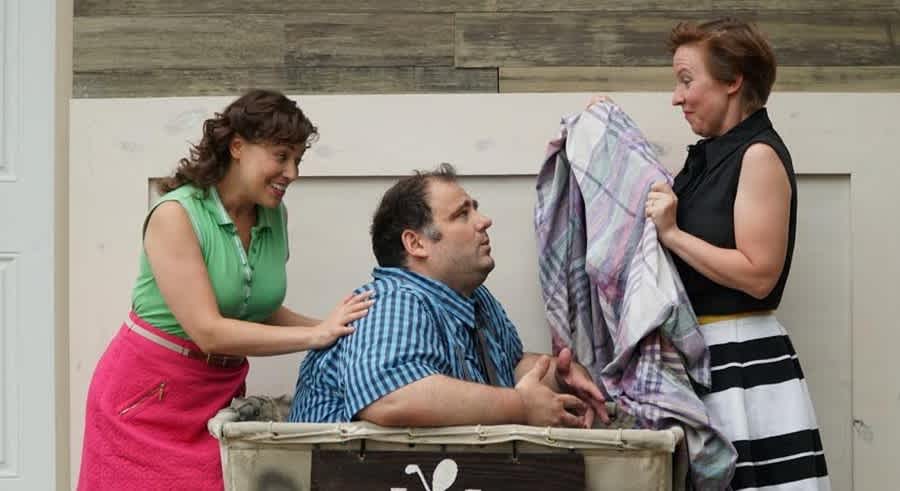3 Things I Learned Playing Falstaff

Photo by Derek Jepsen
This summer, I was asked by some friends at The Arc Theatre to play Falstaff in their summer production of The Merry Wives of Windsor. It had been awhile since I’d done outdoor Shakespeare and I was hesitant to do it given a busy schedule and a lot going on in my life. But, in the end, I made the decision to go ahead and take the role and I’m glad because, like any project, I learned a lot doing it. Here are three of the most important lessons I picked up this summer:
Start memorizing…now!
This was the most humbling thing about the experience. I learned the hard way that memorization, like a muscle, atrophies over time and when you don’t use it. For the first time in my life as an actor, I found myself really struggling with memorization playing Falstaff. That struggle took me out of the moment at times and kept me from listening as fully as I wish I could have done. I see this all the time in classes I teach, that poor memorization results in disconnection and stifled impulses. So, my first big lesson from this summer is to start memorizing as soon as you get the script. Had I to do over again, I would have cleared out time every day as soon as I was given the part to spend on the simple drudgery of memorizing. It’s not glamorous work but it is utterly vital if you’re going to do anything else. If I had made time early on, I would have found much greater freedom and depth of listening in the moment during rehearsals and, I have no doubt, I would have been able to follow my impulses more fully. Memorization is a big part of the job, so start it now!
Stamina doesn’t happen accidentally.
Another humbling reality I learned this summer is that I don’t have the same physical stamina I once did. I found myself after shows physically in pain and exhausted. And that’s after a 95 minute show. In the past, I would have been able to do that without thinking twice but now, at 37, I’m finding that I need to warm up more fully in order to do a show. Keeping up your chops isn’t just about brushing up your acting technique, it’s making sure that you are physically and vocally ready to get in the game and stay in the game. I wish I had spent more of my time over the last couple years focused attending to a vocal and physical regimen so I would have been more ready when I got the call to do the role. I can’t change the weather so, if I’m going to do outdoor shows, there will be other humid 95 degree days when we perform. But, I can make sure that I do the work so that I’m vocally and physically ready for those conditions. A little practice everyday goes a long way towards creating the space within oneself to be able to meet the work as one’s best self.
Saying yes is not just for improv.
I have a tendency to turn things down right away. I’m busy and have a lot going on in general so it’s easy to just say, “no.” I’m so glad I didn’t this time. As humbling as this summer of playing Falstaff was on some levels, I am very happy I did it. Working with the cast and crew at The Arc was a great experience. Everyone involved was kind and generous with each other and we had a blast doing it. I’m very happy I pushed myself to take the project on. It has given me the courage and drive to open up to new experiences and search out new opportunities. Saying yes can lead to great things and I wish for you that you’ll find yourself taking the leap.